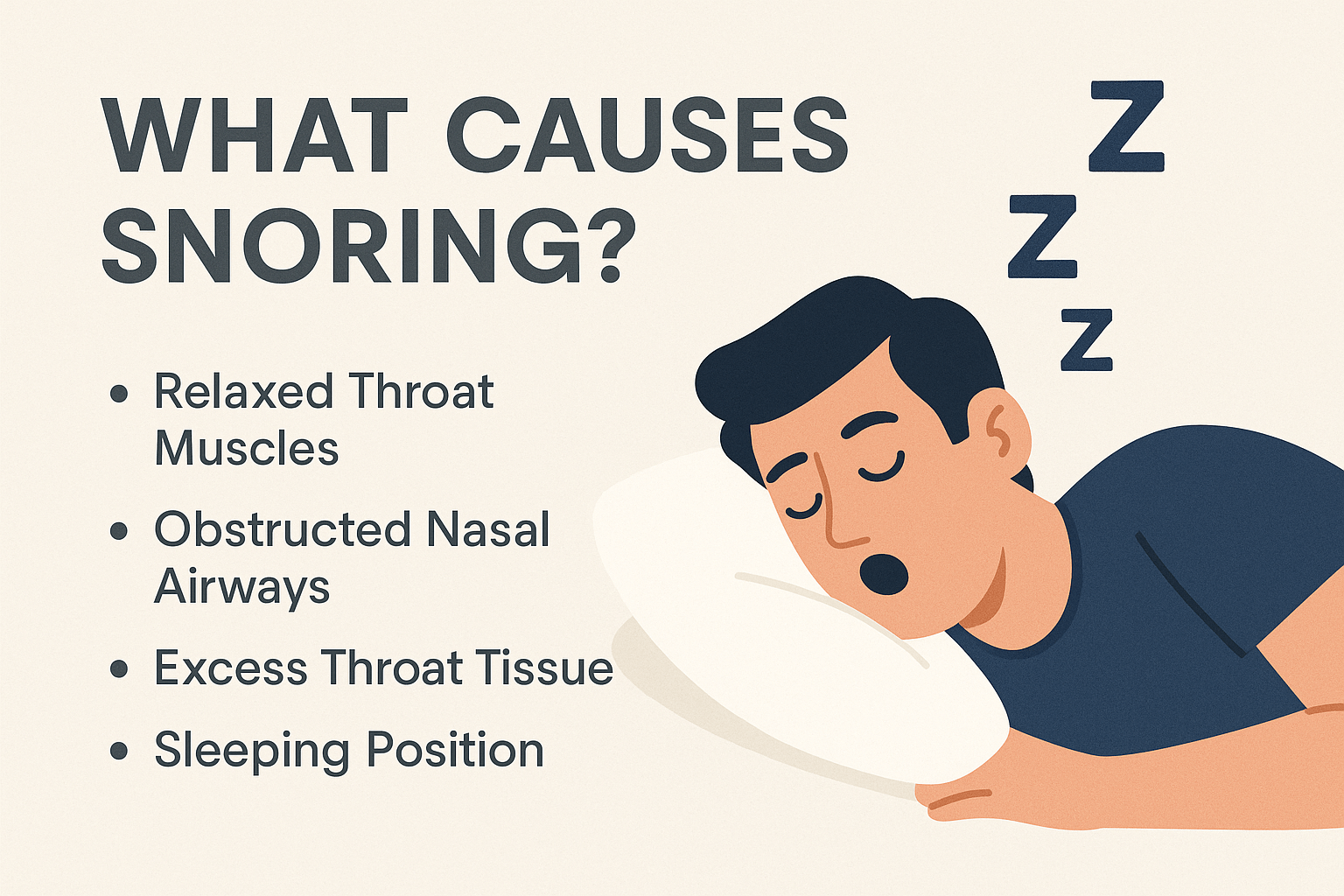Snoring is a common nighttime annoyance that affects millions of people and their sleep partners around the world. But what exactly causes that loud, rattling noise while you’re trying to rest? Understanding the root causes of snoring is the first step toward finding relief and enjoying peaceful, uninterrupted sleep.
The Basics of Snoring
Snoring happens when airflow through the mouth and nose is partially blocked during sleep. When this happens, the soft tissues at the back of your throat—including the soft palate, uvula, tonsils, and tongue—can vibrate, creating the familiar snoring sound. The tighter the airway, the louder the snore.
Common Causes of Snoring
- Relaxed Throat Muscles
When you fall asleep, the muscles in your throat naturally relax. In some people, this relaxation causes the airway to narrow or partially close, increasing the chance of vibration and snoring. - Obstructed Nasal Airways
Nasal congestion or a deviated septum can restrict airflow through your nose. This forces you to breathe more through your mouth, increasing the likelihood of snoring. - Excess Throat Tissue
Being overweight often means there is extra fatty tissue around your neck and throat. This excess tissue can press on your airway, making it narrower and prone to vibrations. - Sleeping Position
Sleeping on your back can cause your tongue and soft tissues to collapse backward into your throat, blocking the airway and causing snoring. Side sleeping often helps keep the airway open. - Alcohol and Sedatives
These substances relax the muscles of your throat more than usual, increasing airway blockage and snoring risk. - Age
As you get older, throat muscles naturally lose tone and become more relaxed during sleep, which can increase snoring frequency and intensity. - Anatomy
Some people have naturally narrow airways, large tonsils, or a long soft palate that makes them more prone to snoring.
When Snoring Could Signal a Health Problem
While snoring can be harmless, frequent loud snoring may be a sign of obstructive sleep apnea (OSA)—a condition where the airway becomes completely blocked during sleep, causing breathing to stop temporarily. OSA requires medical attention, as it can lead to serious health problems like high blood pressure, heart disease, and daytime fatigue.
What You Can Do About It
Understanding what causes snoring can guide you toward solutions. Simple lifestyle changes like losing weight, avoiding alcohol before bed, and sleeping on your side can reduce snoring. Additionally, the Pyramid Pillow is uniquely designed to keep your head gently inclined at the optimal angle of about 9.5 degrees. This slight incline helps keep your tongue from falling back into your airway, reducing obstruction and minimizing snoring naturally—without the need for bulky devices or uncomfortable gear.
If snoring is disrupting your nights or those of your loved ones, don’t just accept it as a fact of life. Explore the causes, try natural remedies, and consider innovative tools like the Pyramid Pillow to enjoy quiet, restful sleep once again.





